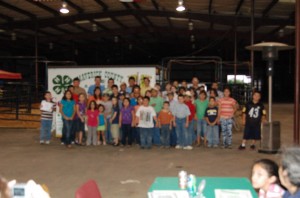MAVERICK COUNTY is in the northwestern section of the Rio Grande plain region in southwest Texas. The Rio Grande forms Maverick County’s western and international border with Mexico; the county is bordered on the north by Kinney County, on the east by Zavala County, and on the south by Webb County. The county is triangular in shape and contains 1,287 square miles, or 824,960 acres. Eagle Pass, the county seat and most populous community, is in southwestern Maverick County on the Southern Pacific Railroad, immediately east of the Rio Grande opposite Piedras Negras, Mexico.
By 1971 three major highways converged at Eagle Pass: U.S. Highway 277 North, followed the Rio Grande to Del Rio and connected with transcontinental U.S. Highway 90; Highway 277 East, connected with Carrizo Springs and Laredo, and U.S. Highway 57, joined U.S. Highway 81 at Moore in Frio County, establishing Eagle Pass as the closest international border town to San Antonio. Eagle Pass is also the gateway to Mexico’s Central Superhighway 57, which runs from Piedras Negras to Mexico City. Eagle Pass is 425 miles southeast of El Paso, 200 miles southwest of Austin, and 275 miles northwest of Brownsville. Other communities in the county include Quemado, Normandy, and El Indio.
The county center lies fourteen miles southeast of Eagle Pass near 28 38′ north latitude and 100 18′ west longitude. Elevations range from 540 feet in the southern part to 960 feet in the northern part. The topography is level, particularly in the north central part of the county, otherwise the county exhibits slightly undulating terrain. The soils are gray to black, cracking and clayey with high shrink-swell potential. In some areas they are light colored and loamy with limestone bedrock. Native grasses are short to mid height. Less than 1 percent of the land is considered prime farmland. The terrain along the Rio Grande is characterized by rough hills overlooking a mile-wide stretch of irrigated farmland.
The Rio Grande drains the western half of the county and the Nueces River the eastern half. The principal source of water for domestic and agricultural use is the Rio Grande; irrigation water is channeled through conduits of the Maverick County Irrigation Canal system for agricultural production. Water wells tap the Carrizo Springs aquifer along the county’s eastern edge; a few wells are located within gravel beds along the Rio Grande.
Scattered mesquite, some live oak, cat’s claw, guajillo, cenizo, and prickly pear are the predominate flora. Wildlife in the 1980s not subject to hunting regulation included javelina, squirrel, bobcat, and coyote; those subject to hunting regulation included white-tail deer, quail, muskrat, beaver, opossum, ring-tailed cat, badger, fox, weasel, raccoon, skunk, civet cat, turkey, sandhill crane, duck, coot, geese, woodcock, jacksnipe, teal duck, rail, gallinule, and mourning and white-wing dove. The Rio Grande Mountain lion, once common in the county, has been the victim of indiscriminate hunting and is an extremely rare visitor today.
The climate in Maverick County has been described as subtropical steppe. Temperatures in the summer are consistently high (a record high of 115 F has occurred on several dates) but are mitigated by low humidity and a steady southeasterly breeze. Winter temperatures are mild and dry, dropping to freezing an average of one out of every four days from December 3 through February 21; farmers can expect an average growing season of 285 days annually. Total annual average rain fall is around 19.5 inches, the greatest quantity of which occurs during thunderstorms, the record low of 6.01 inches occurred in 1956 and the record high of 44.36 inches occurred in 1900.
2022– 2023 4-H Enrollment Steps
- On your computer browser type 4-H Online.
- You must select 4honline.com
- You will see the 4-H Online Enrollment page with all the USA States included.
- Scroll down and select Texas, you will then see the log in page. Please fill out all required fields.
- If you are a returning 4-Her, you must use the same email and password.
- If you are a new 4-Her, you will need a valid email and create a new password.
- Make sure you enter a valid email; this is how you will receive 4-H Connect information.
- Please include the name of your school. The name of the school is needed to excuse the 4-H kid for the livestock show and any other 4-H events.
- Please use your physical address and not a PO Box number. This is provided to City of Eagle Pass Code Enforcement, if you keep your animal project within the city limits. Note: It’s your responsibility to fill out and submit the permit to Code Enforcement.
- Select the 4-H Club of your preference: Eagle Pass 4-H Club, Rio Bravo 4-H Club, Southside 4-H Club or Quemado 4-H Club. If you are an Officer Board Member of a 4-H Club, you can also select 4-H Council of Maverick County. If you would like to participate in the archery rifle or shotgun, you can select the Maverick County 4-H Shooting Sports Club.
- You can pay the $25.00 yearly fee with a credit or debit card, Visa, Master Card or Discover are accepted. The fee after October 1 is $30.00.
- If your payment is declined, your name will not appear in the 4-H list. The system will also guide you to resolve the issue.
- Please visit our web page maverick.agrilife.org once a month.
- Lamb and goat validation is usually the second weekend of October.
- Hog validation is usually the second weekend of November.
- Rabbit validation is usually the second weekend of December.
- The 2023 MCJLS is scheduled be on January 17, 2023.
Oscar Galindo MS
County Extension Agent, Agriculture and Natural Resources
County Coordinator and 4-H Coordinator
Texas A&M AgriLife Extension
Maverick County – District 12
2350 E Main Street
Eagle Pass, TX 78852
Ph 830-773-5064 – Fax 830-773-3450 – Cell 830-352-4537
E-mail: ogalindo@ag.tamu.edu maverick@ag.tamu.edu
Blanca Ruiz
Extension Agent
Cooperative Extension Program
County Extension Agent
Family and Community Health
2350 E Main Street
Eagle Pass, TX 78852
Ph 830-773-5064 – Fax 830-773-3450
email: baruiz@pvamu.edu



